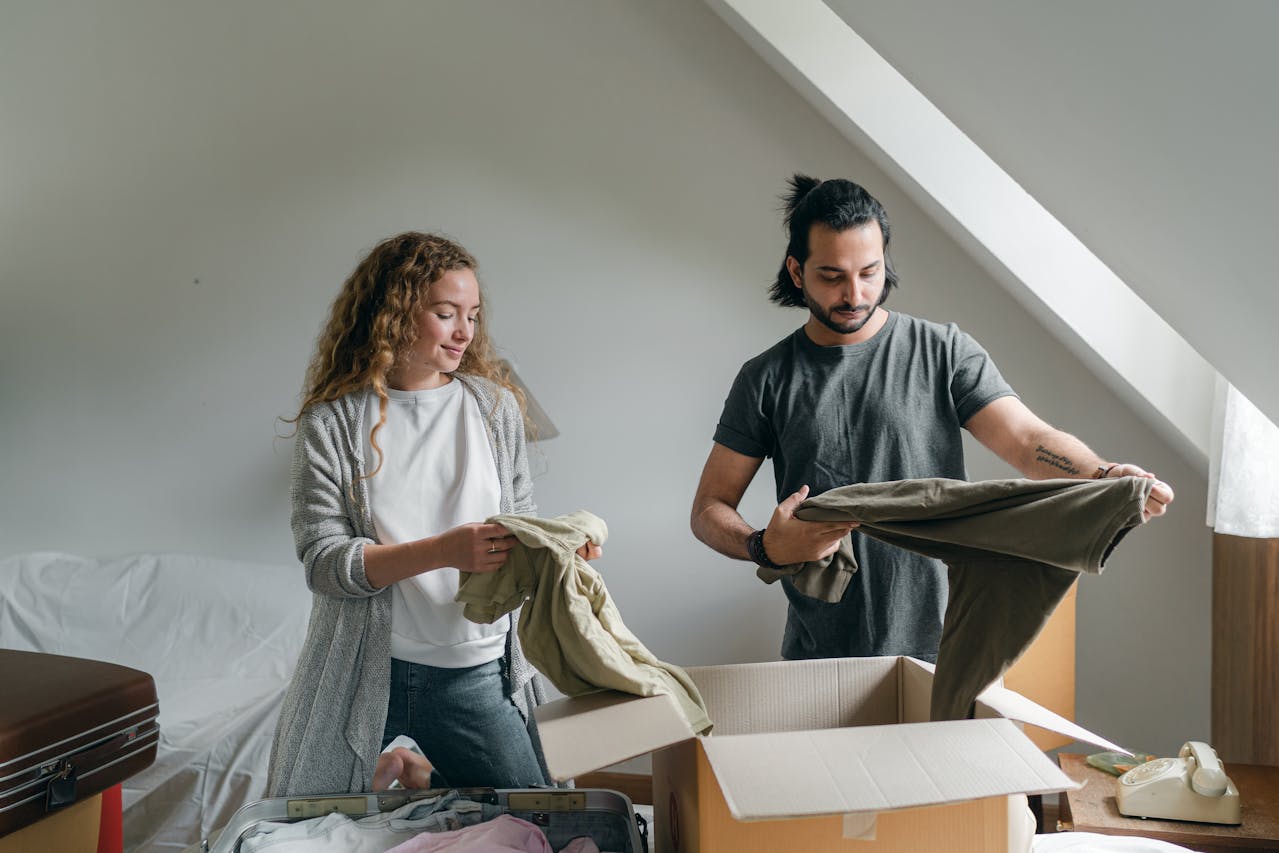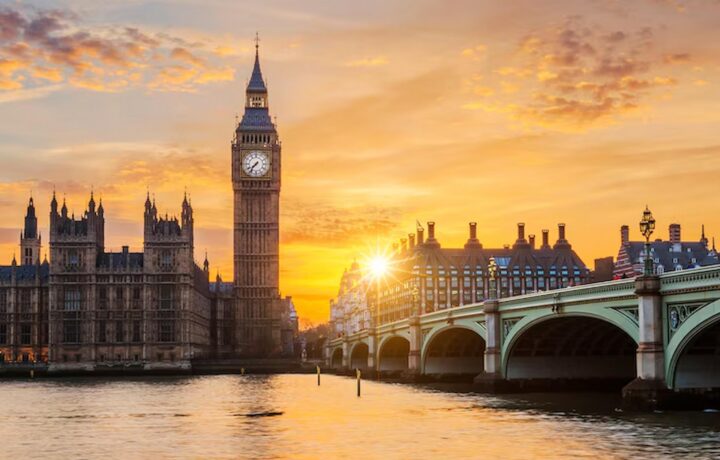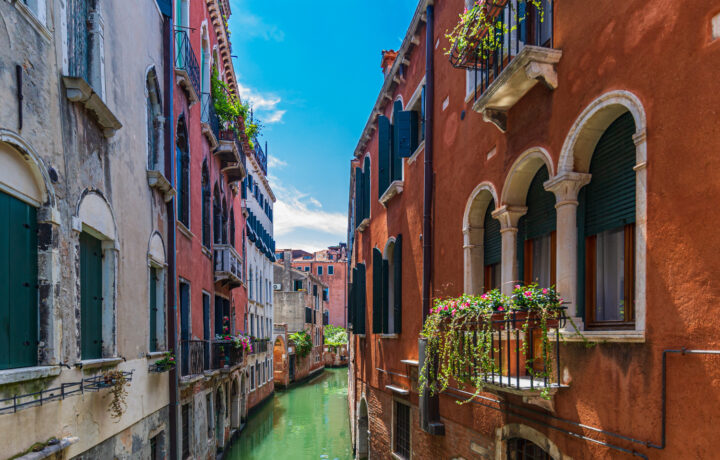Do you miss the lovely vacation spot you had to leave behind? Do you struggle with having nothing to look forward to while dealing with a mound of urgent emails and housework?
July and August are the busiest months for summer vacations in Britain, with millions of people leaving on short-term domestic and international trips to unwind.
But with autumn approaching, many will discover that those idyllic beach days seem incredibly far away once more. In fact, as individuals deal with the last few days of August and the arrival of colder, darker times, searches for “holiday blues” have increased by a staggering 7200% in the last month, according to Google trend statistics.
Even while research indicates that vacations lower stress and improve wellbeing, the idea of going back to your usual schedule of work and school upon your return may give you the post-holiday blues.
The “post-holiday” blues phenomenon was confirmed without us even having to read the most recent study, though. Everyone has experienced returning home to chilly Great Britain carrying a bag full of unwashed clothes and knowing that their email will quickly overwhelm any cheery feelings they may have had during the holidays.
But is there any truth to this phenomenon?
Are There Actually Post-Holiday Blues?
“The holiday blues isn’t a scientific or medical term or diagnosis but certainly many people experience low mood and anxiety when returning from holiday or during a holiday season,” says psychologist and co-founder of UK Therapy Rooms Dr. Daniel Glazer.
Surveys confirm this, revealing that a significant number of people—57% of us—do in fact experience “post-holiday blues” following a vacation.
The Christmas blues, according to Dr. Glazer, can manifest as “feelings of sadness and low mood around the end of a holiday” or as “anxiety and irritability around returning to day-to-day life.” Sleep, hunger, motivation, and energy levels may all be impacted by this.

Why We Experience Post-Holiday Depression
Glazer thinks there are probably several reasons why, not just “one why.”
First of all, traveling overseas might present us with chances to escape the pressures of daily life, routine, and pressing concerns. Going back to this, it can be “an indication that there is something in life that requires attention.”
Second, as there is often emotional tension at the beginning and finish of something, there may be a link to “more existential anxieties.”
“We get excited for a holiday at first, and by the time it’s over, we often feel like the time has flown by.” A vacation helps us face the fact that everything ends, and it can be difficult to get back into the swing of things when we are constantly aware of how quickly time is passing.
According to Dr. Daniel Glazer, “it can be helpful to use your usual strategies to manage difficult feelings, such as exercise, meditation, doing something creative, or being in nature, if the holiday blues show themselves more as anxiety and irritability.”
When We Come Back From Vacation, What We Hate the Most
It’s interesting to note that Tesco Bank Money recently identified the tasks we detest the most after returning from vacation. Perhaps surprisingly, doing the laundry comes in first place! The top 10 are as follows:
- Washing clothes during holidays (32%).
- Christmastime blues (26%).
- Needing to get back to normal (25%)
- Returning to work (22%)
- Packing and unpacking the bags (19%)
- Establishing a daily schedule (19%)
- Unpredictable weather in the UK (13%)
- Filtering through a mountain of posts (12%)
- Having nothing to eat at home (11%)
- When will the next holiday be (10%)?
After returning after a break, our “post-holiday blues” might last for a while as well. Of the 2,000 British workers surveyed, one-third admitted to eating junk food in an attempt to feel better. As everyone knows, in the long term, this frequently just makes matters worse.
In order to avoid the cookie jar and get back into the groove of things after a vacation, consider these expert ideas on how to overcome the post-holiday blues from the world’s leading health and wellness authorities.
Unpack Right Away
“While it might be tempting to ditch your suitcase and put your feet up for days on end when you get back off a break, leaving your bag packed will only delay the inevitable,” says StressNoMore’s Stephanie Taylor, a health and wellbeing expert. Rather, make an effort to put your bag away, sort through the mountains of dirty laundry, and unpack when you arrive home.
Ultimately, the unpleasant scent of stale Christmas clothing will probably make you feel even more down. Rather, make a complete reset and welcome a new beginning, completely rejuvenated after your vacation!

Give yourself a few days to re-establish your routine.
According to a recent study, it can take up to three days to go back into a regular sleep schedule after a holiday and that many people have anxiety about going back to work.
Taylor suggests that after a break, schedule a few days off to give yourself time to acclimatise rather than returning to work right away.
To lessen the impact of those early and lengthy workdays on your body, it’s advisable to set your alarm for a little earlier on readjustment days if you have a habit of sleeping in late.
Try to make the most of the time by visiting your loved ones, doing any tasks, or stocking up on food. Keep those nights free because you’ll probably need them to get back into the groove of things once you start working again.
Maintain Your Holiday Exercise Routines
Have you started swimming before breakfast? Or how about a stroll after dinner? During our vacation, we often find ourselves in a new habit of health and vitality since we have more time to be active and a more stimulating environment.
That does not imply that you cannot continue with your newly discovered favourite pastimes after you return. According to Dr. Sally Norton, the health founder of Vavista.com, it will not only help lift your spirits out of the post-holiday funk but also make you even fitter and more toned for the bikini season of next year.
Quit Your Unhealthy Holiday Routines
Conversely, we frequently undergo complete habit changes when we travel, and these changes aren’t always positive. Many individuals drink more, stay up late, and give up on routine.
Because alcohol is a depressant, it’s crucial to watch how much you drink when you get back, especially if you’re in a bad mood. To make sure you develop a healthy habit, think about switching to mocktails and locating low- or no-alcohol beverages that you actually enjoy, advises our good friend Dr. Glazer.
In addition, a lot of us stay up later than usual and get less sleep when we’re in holiday mood. However, it could be challenging to go back into our regular schedule after we return. When you have jet lag on top of this, it can get worse.
“We need sleep to stay healthy. One study found that getting too little sleep was linked to a much higher risk of experiencing mental anguish frequently. In order to ensure that you can fall asleep more easily, try to get back to your routine as soon as you can and utilise some relaxation techniques before bed, says Dr Glazer.
Print Your Photos
One benefit of living in the digital era nowadays is that you will most likely return home with a smartphone full of pictures. Rather of filling up the memory on your phone, print them out to maintain the festive mood, says Norton.
In agreement, Dr. Glazer informs us that “the memories we bring back with us is one of the most rewarding elements of a holiday.” Experiences that change people’s lives and even merely happy moments can be had when travelling. Making a photo album, journaling, or scrapbooking is a wonderful way to remember and look back on these times. Actually, arts and crafts like journaling and scrapbooking can help with remembering and offer a way to decompress.
“If you’re not into crafts, you can also just upload your memories to social media,” he says. This will serve as a means of self-expression and relationship building, as well as a way for you to express thanks for your experiences. It’s crucial to remember that moderation is key in this situation, and that you should only spend a limited amount of time online—especially on social media—and only on information that makes you happy.

Take Your Experiences With You
Travelling is a fantastic way to discover new things, such hobbies, language learning, or water sports, but we frequently forget about these as soon as we get off the plane. But learning new things can have a huge positive impact on one’s mental health.
According to the specialists at UK Therapy Rooms, “if there was something you particularly enjoyed while you were away, such as learning a language, doing a wine tasting course, or taking up a hobby, consider introducing it into your day-to-day life when you’re back home.”
It’s true that being proactive and taking classes or joining a club will help you feel less down when you return home because you’ll be incorporating the things that made your vacation so special into your everyday activities and will be occupied with things you enjoy. Additionally, acquiring these new experiences can help you develop your sense of self and culture, which you can then share and appreciate with others, thus expanding your horizons even farther back home.
Make a dinner inspired by your travels.
“Recreating some of your favourite meals from your trip is a great way to continue to bring a little bit of your vacation home with you. From exotic local cuisines to just a really nice dinner you had one night.” Food has a powerful ability to evoke memories and emotions, whether you spent a long weekend somewhere close to home or on vacation in a faraway place. As a result, cooking a dish you enjoyed while away can bring back memories and comfort, which will ease the transition from vacation to home, according to the experts at Poem Analysis.
Loved the fresh grilled fish you had in Greece, the meaty tagines in Morocco, or the fresh food you bought every day at the market in France? Norton drives home his point. When you return, let the various flavours and cuisines you experienced throughout your vacation serve as inspiration. Vacations are a terrific way to get out of a food rut; chances are, while you were away, you consumed more freshly made meals and fewer manufactured ones. Keep it up.

Make Sure You Still Have Some Cash
It’s a well-known joke, according to Taylor, that when we travel, we frequently treat foreign currency as if it’s not “real money,” frittering it away on upscale meals, beverages, and mementos. And that’s fantastic. You are, after all, on vacation. However, as the cost of living problem affects more individuals, being irresponsible while overseas may cause financial difficulties upon your return.
She advises making sure you go over your allotted amount in advance so you may enjoy a worry-free, opulent vacation and still have money left over for necessities when you go home.
Wishing you were back on vacation and then having no money to buy anything is the epitome of home depression.
Accept The New Season
The changing seasons in the UK are a major perk for many people, despite the fact that it may seem a little strange to us Brits!
Norton concurs, saying, “You’ve returned to a ten-degree dip in temperature. melancholy? Be not! Instead of pining away for the flowy garment that makes you shiver, wash and store all of your summer clothing and welcome the season’s transition in all its mists and subdued fruitfulness. cosy sweaters, fall-inspired eyewear, and glossy leather boots—we would gladly trade sand between our toes for a leisurely stroll through the changing foliage of autumn.”
Invest Time in Your Loved Ones
For certain individuals, travelling overseas presents an ideal chance to establish new relationships and meet new people. Since humans are social creatures who are accustomed to belonging to groups, social interaction can be crucial to our wellbeing.
According to reports, there is a “cocktail” of neurotransmitters that are released when we come into direct touch with another person. These neurotransmitters are responsible for controlling our reaction to stress and anxiety.
Make sure to schedule time with friends and family if you’re feeling lonely or alone after returning from a vacation. Additionally, it’s a wonderful way to express your gratitude for your time away and share your experiences, advise the professionals at UK Therapy Rooms.

At last, schedule another break!
Okay, so you don’t really need to reserve it, but research indicates that doing so can help you get back on track and shake off your wanderlust. Is there a concern with fiscal funds? Daydreaming doesn’t cost anything, so why not create a Pinterest board with all the places you’d like to see? Norton suggests.
According to the specialists at Poem Analysis, “getting some ideas and inspiration for your next trip can make you feel less sad about your holiday ending, even if you don’t have the money to book anything else so soon after returning.” Scheduling a new vacation gives you something to look forward to right away, and the thrill and anticipation can serve as a powerful diversion from any melancholy that may strike when you return home.
As an alternative, incorporate a few little “escape days” into your schedule. Give yourself a day to discover a new park, museum, or neighbourhood that you haven’t been to often. The folks at Poem Analysis suggest these mini-adventures to add some originality and excitement to your everyday and to keep you feeling exploratory until you can take another vacation.
The Final Word
Even though the holiday blues are frequent, it’s advisable to be cautious if your symptoms could indicate a more serious condition. According to Dr. Daniel Glazer, “it would be a time to seek help if these feelings interfere with functioning, such as if they significantly impact sleep, appetite, work, or relationships.”




